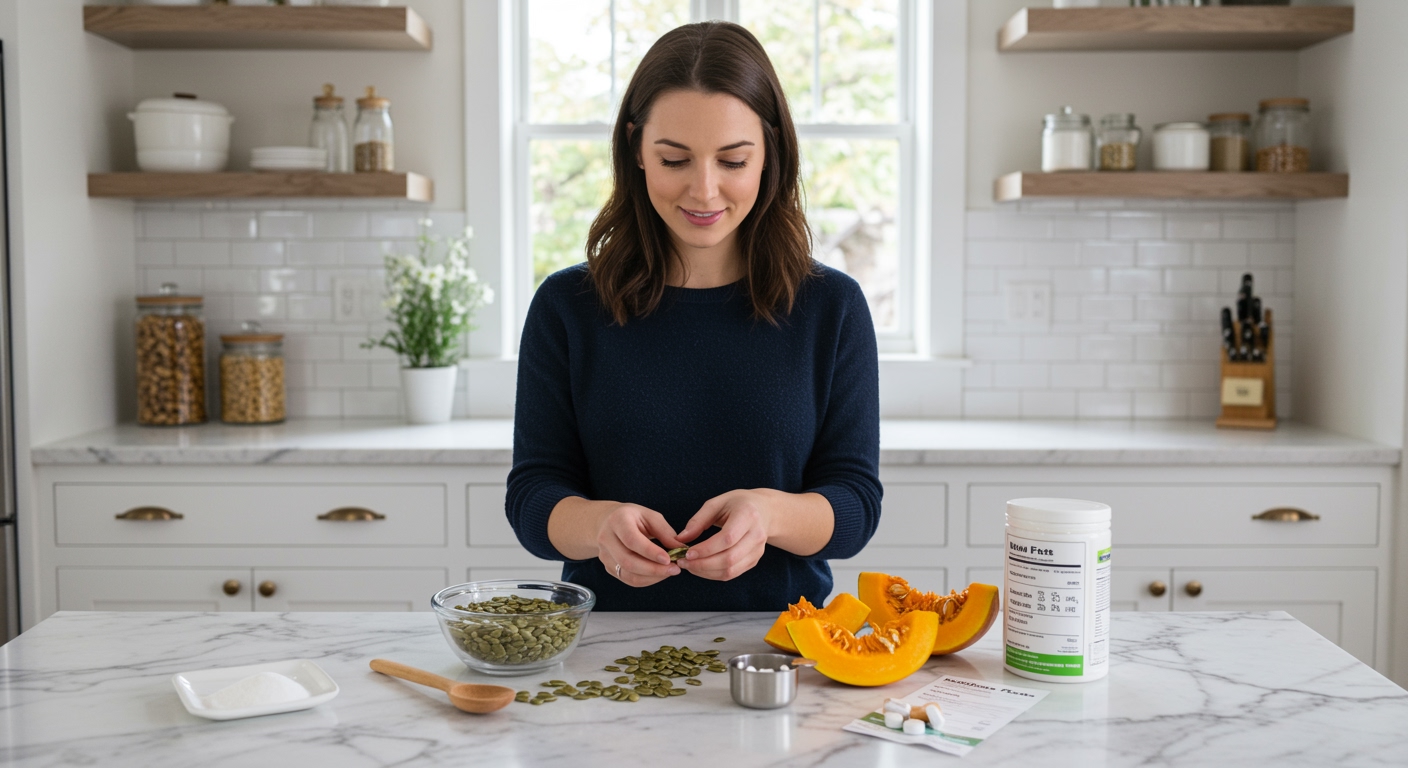✪ Key Takeaway: PCOS women can eat grapes in moderation as they contain beneficial compounds that may help with insulin sensitivity and inflammation.
Introduction
You reach for a bunch of grapes at the grocery store, then hesitate because someone told you fruit is bad for PCOS.
This confusion happens because many women with PCOS receive conflicting advice about which fruits are safe to eat.
Hi, I’m Abdur, your nutrition coach and today I’m going to explain exactly how grapes affect PCOS and whether you can include them in your daily diet.
What Makes Grapes Different From Other Fruits?
Grapes contain a unique compound called resveratrol that sets them apart from most other fruits.
This powerful antioxidant is found mainly in the skin of grapes and has been studied for its effects on hormone balance.
Research shows that resveratrol can help improve insulin sensitivity in women with PCOS.
The compound works by activating certain proteins in your cells that help regulate blood sugar more effectively.
Grapes also contain natural sugars called fructose and glucose, but they come packaged with fiber and antioxidants that slow absorption.
This combination means grapes have a moderate glycemic index of around 46, which is lower than many processed snacks.
✪ Fact: Red and purple grapes contain higher levels of resveratrol than green grapes due to their darker skin pigments.
How Do Grapes Affect Insulin Levels In PCOS Women?
Women with PCOS often struggle with insulin resistance, making blood sugar management crucial for symptom control.
When you eat grapes, the natural sugars enter your bloodstream and trigger insulin release from your pancreas.
However, the fiber content in whole grapes slows down this sugar absorption compared to grape juice or processed grape products.
Studies suggest that resveratrol in grapes may actually help your cells become more sensitive to insulin over time.
This means your body needs less insulin to process the same amount of sugar, which is beneficial for PCOS management.
The key is eating grapes with other foods that contain protein or healthy fats to further slow sugar absorption.
A handful of grapes with some nuts or cheese creates a more balanced snack that prevents blood sugar spikes.
✪ Pro Tip: Eat grapes earlier in the day when your insulin sensitivity is naturally higher for better blood sugar control.
What Is The Right Portion Size For PCOS Women?
Portion control becomes critical when you have PCOS because even healthy foods can cause problems in large amounts.
A proper serving of grapes for women with PCOS is about 15-20 individual grapes or roughly half a cup.
This portion provides approximately 15 grams of carbohydrates, which fits well within most PCOS meal plans.
You can have this amount once or twice per day, but avoid eating grapes as your only snack.
Combining grapes with protein sources like Greek yogurt, nuts, or cheese helps stabilize blood sugar response.
Timing also matters – eating grapes around your workout or physical activity helps your muscles use the natural sugars more efficiently.
Never eat grapes late at night when your insulin sensitivity is naturally lower and you are less active.
✪ Note: Frozen grapes make an excellent portion-controlled dessert alternative that takes longer to eat and feels more satisfying.
Can Grapes Help With PCOS Inflammation?
Chronic inflammation plays a major role in PCOS symptoms and can worsen insulin resistance over time.
Grapes contain powerful anti-inflammatory compounds including resveratrol, quercetin, and anthocyanins.
These antioxidants help reduce inflammatory markers in your blood that are often elevated in women with PCOS.
Research shows that regular consumption of antioxidant-rich fruits like grapes may help lower C-reactive protein levels.
Lower inflammation can lead to improved hormone balance and better ovarian function in women with PCOS.
The anti-inflammatory effects work best when grapes are part of an overall healthy diet rich in vegetables and lean proteins.
However, eating too many grapes can actually increase inflammation due to excess sugar intake, so moderation remains key.
✪ Fact: Grape seed extract supplements contain concentrated antioxidants but whole grapes provide fiber and other nutrients that supplements lack.
Which Types Of Grapes Are Best For PCOS?
Not all grapes are created equal when it comes to PCOS management and blood sugar control.
Red and purple grapes contain higher levels of beneficial compounds compared to green varieties.
The darker the skin, the more resveratrol and anthocyanins the grapes contain.
Organic grapes are preferable because they have higher antioxidant levels and no pesticide residues that could disrupt hormone balance.
Fresh whole grapes are always better than grape juice, raisins, or dried grape products for PCOS management.
Grape juice removes the fiber and concentrates the sugars, causing rapid blood sugar spikes.
Raisins are extremely concentrated in sugar and easy to overeat, making them poor choices for women with insulin resistance.
✪ Pro Tip: Choose grapes that are firm to touch and still attached to green stems for maximum freshness and nutrient content.
The Bottom Line
PCOS women can safely enjoy grapes in moderation as part of a balanced diet that supports hormone health and blood sugar control.
The key to managing PCOS is not eliminating foods but learning how to eat them in ways that support your body.
I would love to hear about your experience with grapes and PCOS management, so please share your thoughts or questions in the comments below.
References
At NutritionCrown, we use quality and credible sources to ensure our content is accurate and trustworthy. Below are the sources referenced in writing this article:
- Endocrine Society: Resveratrol can help correct hormone imbalance in women with PCOS
- MyOvaCare: Grape Seed Extra Benefits for PCOS
- PubMed Central: Effects of resveratrol on metabolic syndrome
- Be Balanced Nutrition: Best Fruits for PCOS





